
Country legend Steve Wariner picks 10 essential guitar albums
Since making his major-label debut in 1978 with Down In Tennessee, guitar virtuoso Steve Wariner has established himself as one of the most lyrical and expressive storytellers to have ever picked up a six-string.
"To me, that's what a great musician is all about," Wariner explains. "Take me on a journey. On a lot of my favorite albums, the guitar drives the narrative, going through the twists and turns, the highs and the lows, the soft and quiet parts. Great guitar players can be the best storytellers around."
Wariner has made all kinds of records over the years, alternating between vocal and instrumental releases, mixing up genres including classical, bluegrass, western swing, rock, pop and jazz. "I love a lot of different types of music, so I try to explore my tastes as genuinely as I can," he says. "Plus, I don't like repeating myself. You’d get bored really fast if you heard somebody doing the same thing over and over. It’s like reading the same chapter in a book too many times."
Wariner's mastery of the guitar has won him just about every award there is (including three Grammys for Best Country Instrumental Performance), along with perhaps that rarest distinction when Chet Atkins personally named him a Certified Guitar Player (CGP), an honor he shares with Jerry Reed, Tommy Emmanuel and John Knowles.
"The thing about those guys and so many other players I love is, you don't hear the technique," Wariner says. "When music gets technical and mechanical, I get lost. I want to hear heart. Keep it simple and make sure the feeling doesn’t get lost. I guess you can just call it ‘soul.’ And you can have soul with one note. That’s Eric Clapton all day long – or BB King. They do that thing I always come back to: They take you somewhere.”
On the following pages, Wariner runs down his picks for 10 Essential Guitar Albums, listed alphabetically by artist.
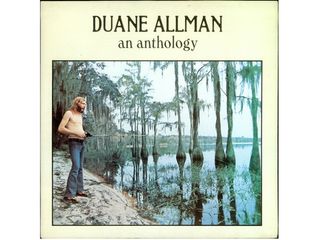
Duane Allman - An Anthology (1972)
“I love, love Duane Allman. What an amazing slide guitarist. The guy was a poet. This is an incredible album that I would recommend to anybody wanting to check out a good chunk of his work.
“It boggles my mind to think of what he did in such a short time. He died so young – he was just a kid – but he was already an epic player. All of the other notable guitarists wanted to play with him – Clapton, in particular. He couldn't wait to collaborate with Duane. They developed a tight bond and had a real mutual respect for each other. Listen to the Layla album - man, those two sound incredible together. You can hear some of those tracks on this record. Really beautiful guitar playing.”
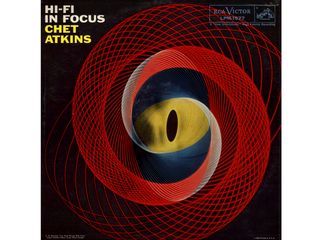
Chet Atkins - Hi-Fi In Focus (1957)
“Choosing just one Chet Atkins record is tough – he had so many great, innovative albums. I was lucky enough to have known and worked with him and have him for a friend.
“This record, I think, is pretty groundbreaking because it kind of ushered in what some called the ‘Nashville sound,’ with the strings and guitars. Chet started it all in ’57; he had a real vision for where things were gonna go. And, of course, there’s his playing – you have to mention that. The guitar work on this record is second to none.
“Chet changed through the years, and he was always listening to new stuff and trying to get improve. How do you improve when you're on that level, you know? [Laughs] I remember going to his office once in the ‘70s, and he picked up a guitar and said, ‘Hey, check out this new lick.’ He played me something, and as you can imagine, it was amazing. He was always so proud when he came up with a new lick or something a little different.”
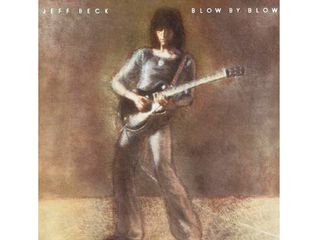
Jeff Beck - Blow By Blow (1975)
“Like it was for me with Jimi Hendrix, I came to Jeff Beck a little late. Once I got into the rock guys, though, I embraced them totally. Jeff Beck is unbelievable. Those trem bends he does? Wow, I just about fell over when I first heard them!
“This album is so cool. There’s a lot of creativity in the playing and the arrangements. I like that it’s jazzy and fusion-y. You can tell that Jeff is having a lot of fun – the feeling just jumps out. He plays raw and wild, but whenever he does something tender, it’s extremely heartfelt and soulful.
"He reminds me of Jerry Reed a little bit, the way he can do certain dips with a note in very unexpected ways. It can be minimal at times, just a nuance thing. He gets inside each sound and explores all that there is to it.”
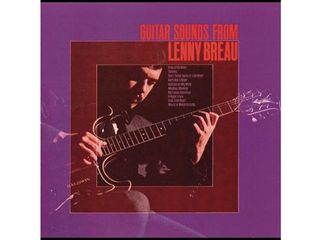
Lenny Breau - Guitar Sounds From Lenny Breau (1968)
“Lenny’s thing was, he was one of those jazz guys who could take a standard song and play it as if he were three different guitarists. He’d play the passing chords, the basslines and the melodies. He was a one-man orchestra.
"You see so many people doing things that he did way back when – the chimes, the long arpeggios, the harmonics. Lenny kind of started it all. This record has a lot of classic pop-country standards arranged Lenny Breau-style. It's all beautifully put together."
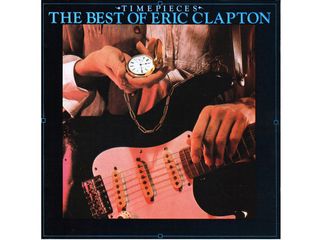
Eric Clapton - Timepieces: The Best Of Eric Clapton (1982)
“Eric Clapton is the poster child for everything I love – soulful music, right from the heart. If I hear him play just one note, I know it’s always the right note. His touch, the way he pulls strings with his left hand, his vibrato – there’s nobody who can get close to what he does.
“This album is a sampler of some of Clapton’s best work at the time. I could name a bunch of individual records, but Timepieces is a nice way to check out a lot of different phases of his artistry.
“I think the measure of a guitarist is to take a look at how many imitators he has, and Eric has a bunch of ‘em. Everybody wants to play like Eric, but nobody really can. He’s a one and only.”
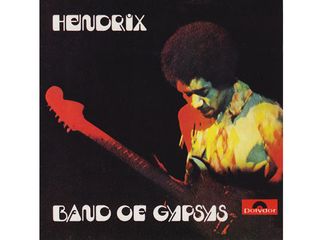
Jimi Hendrix - Band Of Gypsys (1970)
“I was a little late to the party with Hendrix. Because of the way I was raised, I listened to a lot of the music that my dad loved – pretty much western swing and bluegrass. And, of course, he had a lot of great Chet Atkins records, so I was definitely OK there. It took me a while to get to Jimi Hendrix, but man, once I did, I was completely knocked out. There was so much soul and feeling in his playing.
“I like this record because it’s live, and it’s something of a transitional record for Jimi – it was pointing to where he was probably going to go had he lived. It’s Jimi with a new band, it’s raw and jammy, and there’s a real sense of mystery and excitement in the music.
“I know a lot of people would point to the first studio albums as their favorites, but I think Band Of Gypsys is really innovative. It would have been something if he could have taken the band and this direction further.”
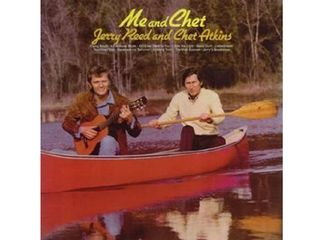
Jerry Reed/Chet Atkins - Me and Chet (1972)
“I could have picked the first one, Me And Jerry [1970], but I think this record has the cooler tunes. Jerry was just on fire. He was amazing on Me and Jerry, but I think there’s a bit of added spark to this one – just a personal opinion.
“Jerry was another innovative guitarist. I tried to learn his stuff as best I could. I was very lucky to have been close with him and played with him many times. After Chet passed, we got even closer. The night Chet died, Jerry called me and we talked for over an hour. He just poured his heart out. I think I was the shoulder he needed that night.
“So Me And Chet, check the record out. Two brilliant guitarists playing fantastic songs, having fun and engaging in some beautiful musical conversations.”
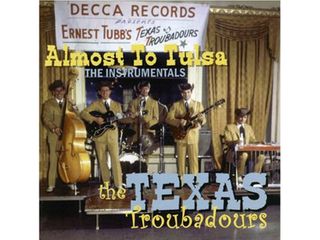
Texas Troubadours - Almost To Tulsa: The Instrumentals (2008)
“I’ve always been a fan of western swing. Leon was in Ernest Tubbs’ band, and they were all incredible jazz players who would play this four-chord country music. Leon Rhodes is an incredible jazz guitarist who could do all of that other stuff.
“Almost To Tulsa is a terrific record for anybody who wants to listen to that kind of style. I love it. Very influential record.”

Merle Travis - Folk Songs Of The Hills (1947)
“I've always admired Merle, because not only was he a great guitarist, but he was also a fantastic composer. He did everything well. As a guitarist, he had something of a hard style. He really dug in with his right hand, way more than what Chet did. More than playing bass notes, he was playing rhythm, grabbing two or three notes like the bottom notes on a piano and driving them home.
“I think Merle developed this style because he would travel by himself and play gigs, so he’d do this rhythm thing as a way of approximating what a second guitarist would do.
“I always tell this to young players: When you’re checking out the rock guys, do yourself a favor and listen to some Merle Travis. It’s not rock, but there's a vitality and a freshness to it that transcends all genres. There’s stuff that you can take from Merle that’ll really improve your own playing.”

Van Halen - Van Halen (1978)
“I gotta do Eddie, man! Jamie’s Cryin’, Runnin’ With The Devil, Ain’t Talkin’ ‘bout Love – what classic tunes. It’s one of those records where every second matters.
“From a guitar-playing standpoint, you could tell that something changed in the water the minute you heard it. Paul Yandell was kind of Chet Atkins’ right-hand guy – a brilliant guitarist in his own right – and he brought the record in and said, ‘You gotta listen to what this guy Eddie Van Halen is doing – it's awesome!’ I listened to it and flipped out. Chet loved it, too. That’s the funny thing about Chet: He listened to and appreciated everything. If it was good, he was a fan.
“It’s full-out stuff, man. Eddie is unbridled on this record. It’s as if he just can’t be contained. I’ve been a fan of his for years. He’s so inspirational and influential. He reminds me of Chet in that sense. Innovators create a buzz that excites you right away, but their impact lasts for years and years. Eddie came up with his own style and did it the way he heard it. I've got a lot of respect for him."

Joe is a freelance journalist who has, over the past few decades, interviewed hundreds of guitarists for Guitar World, Guitar Player, MusicRadar and Classic Rock. He is also a former editor of Guitar World, contributing writer for Guitar Aficionado and VP of A&R for Island Records. He’s an enthusiastic guitarist, but he’s nowhere near the likes of the people he interviews. Surprisingly, his skills are more suited to the drums. If you need a drummer for your Beatles tribute band, look him up.

"Reggae is more freeform than the blues. But more important, reggae is for everyone": Bob Marley and the Wailers' Catch a Fire, track-by-track

“Part of a beautiful American tradition”: A music theory expert explains the country roots of Beyoncé’s Texas Hold ‘Em, and why it also owes a debt to the blues

"Reggae is more freeform than the blues. But more important, reggae is for everyone": Bob Marley and the Wailers' Catch a Fire, track-by-track

“Part of a beautiful American tradition”: A music theory expert explains the country roots of Beyoncé’s Texas Hold ‘Em, and why it also owes a debt to the blues









